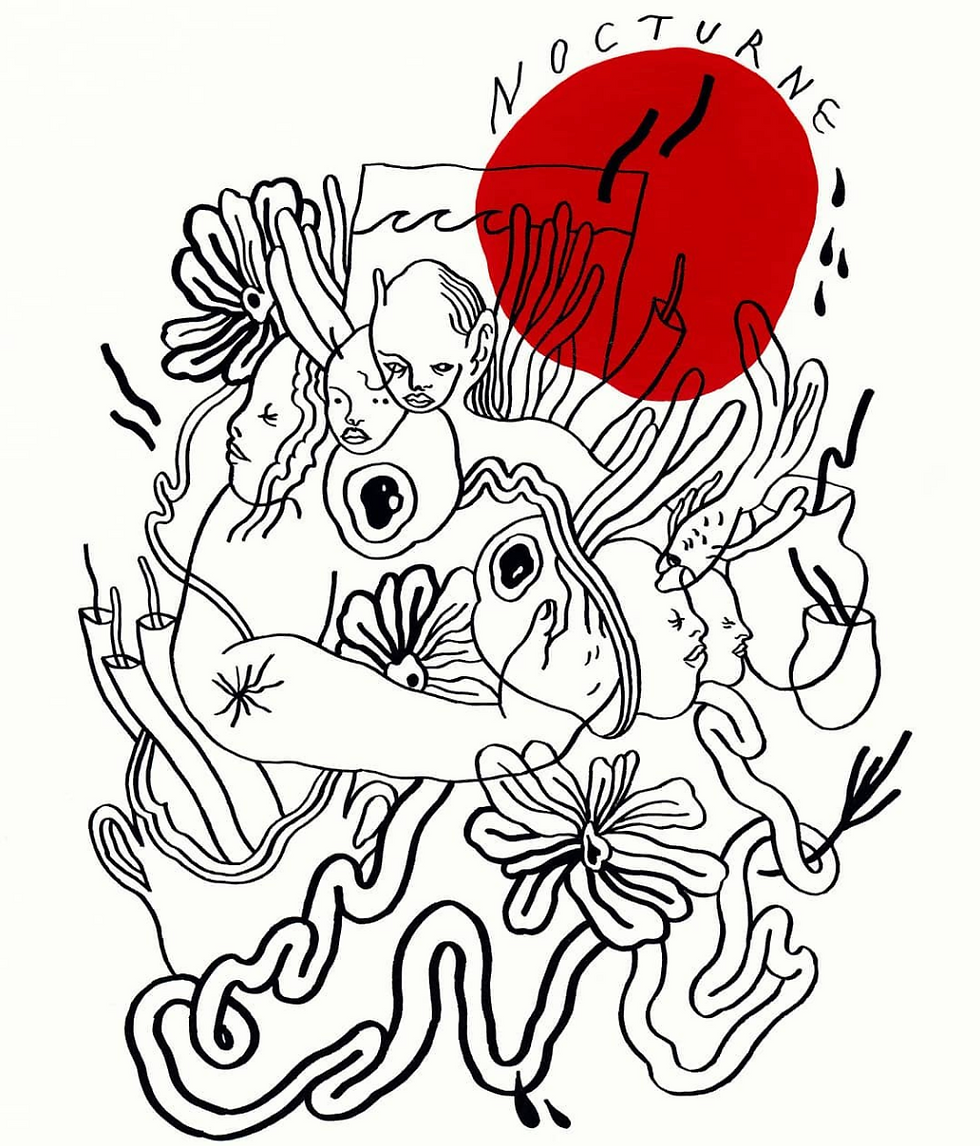The Long 2016: The Self-Aestheticizing Moment (or, Thoughts on Paddington and Paddington 2)
- Ian Macartney

- Jun 23, 2020
- 4 min read
Updated: Jul 19, 2020
Written as part of the Epikinetics series. Read more of Ian's work here.

“I’m not a conservative but I find myself clinging on to the past for dear life…”
Doomsquad, ‘General Hum’
I. When Paddington passes through the gears of a machine in Paddington 2 (2017), we become nostalgic not for Modern Times (1936) and the cinema of that era, but rather, nostalgia itself. The blatant obviousness of the reference harkens back to a time when references like this were hallmarks of preceding work, noting dues and inspiration, intertextual – homage – and not part of an ironic currency.
II. The Paddington films of the 2010s oscillate between whimsy and seriousness – a nuanced development on the current moment’s never-ending bounce between sincerity and cynicism. Deadpan mentions of “darkest Peru” are funny not only because of the anachronism; and that the term comes from an assimilated native, but also because it stands as its own signifier – the joke is repeated such it becomes plot (to find out more about the explorer of darkest Peru).
III. Paddington (2014) and Paddington 2 deal with the retro; they are films that inhibit the retro-space, but are also wholly contemporary. They present a hybridised mix of idealised London and cynical London.
IV. In a world seemingly devoid of whimsy (a contemporary London which devours the old-fashioned idealism of itself) these Paddington films provide such feelings in troves. Yet at the same time, and this is perhaps due to the viewer (though the fact that it offers itself as part of the comedy implies the creative team are also involved), whimsical notions are “known” to be absurd.
V. Consider Paddington 2’s pink prisoners. On the one hand Paddington shifting their clothes to be pink insinuates a sincere shift from cliché toxic masculinity (the violent prisoner) to compassionate alternatives. On the other hand, this appears absurd, and we assume is absurd, and so laugh at the seeming futility of the gesture – while also believing in it, because we must. It’s a kind of escapism, for sure, but slanted. The inherent strangeness in watching a family film when an adult, saturated in postmodern affect, becomes apparent here.
VI. The Long 2016 is my name for the current period. Because, since then, it feels like those twelve months never ended. Not only was it a bombastic rupture of the zeitgeist, with the one-two punch of Brexit and Trump, but also particularly surreal. This was the year Bono was voted Glamour magazine’s Woman of the Year, the year Leicester City won the Premier League 1000 to 1… the logic of internet memes became sentient, oozed into our living rooms, political structures and global market(s).
VII. In the same way the ‘Long 18th Century’ was so named because 200 years were so historically similar (1688-1815 according to Paul Baines), so too the Long 2016, except because of our accelerated times an entire half-decade feels significant and epochal.
VIII. We (or, specifically, liberals) were so used to the post-1989 malaise (one true superpower in the U.S.A., one true way of the West; capitalist realism &c.) that the shock of the Trump-Brexit/far-right/radical/populist rebound caused a knee-jerk reaction of disgust, because the aesthetics of protest are what matter to those comfortable in the West, versus actual protest. Trump moreorless enacts arch-Republican orthodoxy, but is gross and says gross things, revealing the id of the system, which is what many in the Octothorpe-Resistance see as unacceptable.
XI. So in the liberal imagination there is the sense “it” (i.e. hegemony) has to go back. There is no ontological way the Long 2016 proceeds – right? Again, capitalist realism – even when the hegemony breaks, or seems to be, or beginning to, there is a dearth of imaginative capability. No way to grasp it.
XII. Hence why it feels like 2016 was so recent, despite the hyper-speed of right now…. though it actually happened about a third of a decade ago.
XIII. The 80s was a moment of history. A lot of things happened in that decade. The people who lived in the 80s, moreorless, knew they were living in history. So there was a distance to their own lives – their own lives in turbulent times – and, as with history and stories, inevitable aestheticizing. This is extremely apparent and more intense in the 10s.
XIV. Yet there is no ample language to talk about now, because we are entangled in it. It is inevitably narrow. To paraphrase Lacan, there is no metalanguage. We can diagnose innumerable issues before the time necessary for solutions can occur (hence a feeling of hopelessness, of overwhelm) but who knows what the current aesthetic is, really? We would look to the best and combine aesthetics then into something new, but the 00s kind of did that to less effective results. Hell, the 80s did that, really. Hence the blend of self-awareness with deliberation, the furtive meaning-making of our times.
XV. So how do we deal with this, until we have the meaningful language of constructed history, of retrospect? We act nostalgic for nostalgia. And, despite its seeming void as per the wishes of establishment forces, we look for sincerity, whimsy – hope, really.
Isle of Skye, April 2019 (13th)





Comments